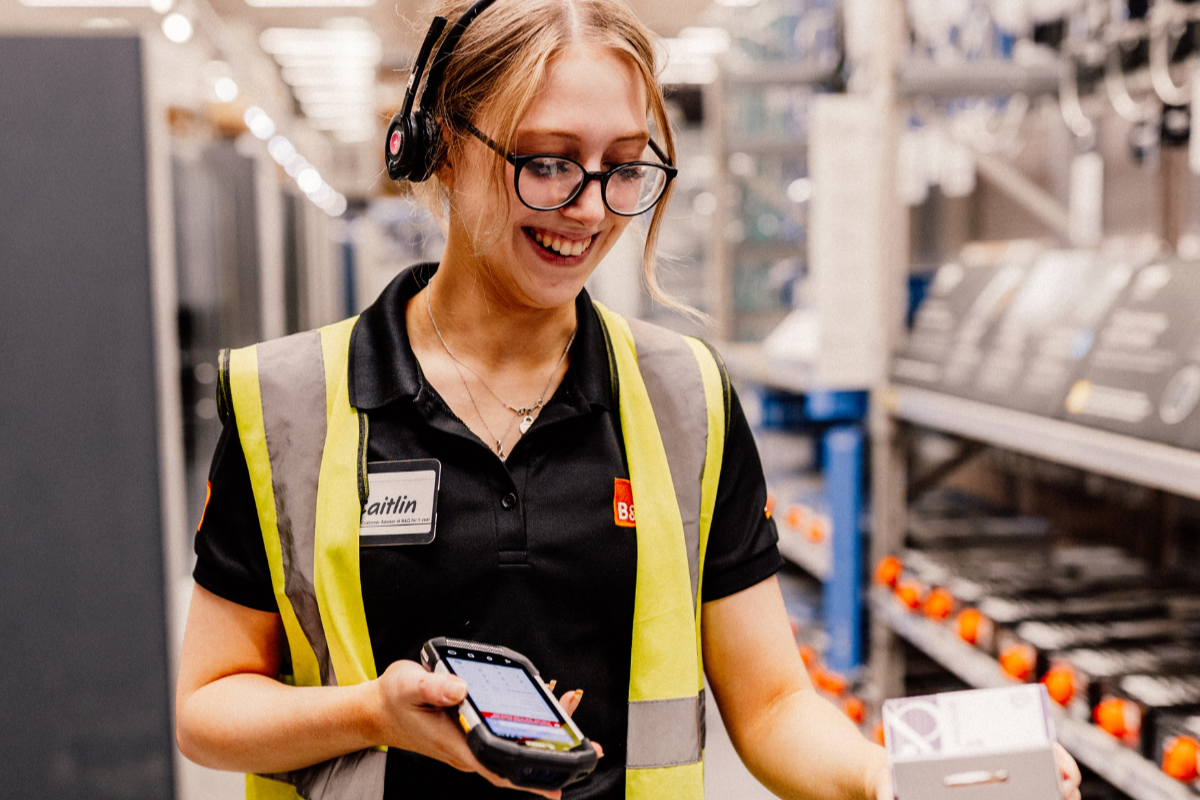Technology expert Stefan Schmidt argues that retailers need to prepare for changes in consumer demand that will shape retail experiences of the future
As web and mobile technology adoption reach critical mass, there is no doubt that the resulting internet economy has had a profound impact on the state of retailing today.
As UK internet shopping sales growth outstrips that of any other country in the western world, it is clear that the country’s consumers are becoming evermore accustomed to using many more different, technology-enabled ways to shop and interact with retailers.
But retailers could do more to keep up, according to Stefan Schmidt, who works with companies including H&M, Toys R Us, Mulberry, Monsoon and L.K. Bennett in his role as vice president of product strategy at ecommerce technology company hybris software .
“Consumers don’t see stores, online, mobile or even retailer’s social networking pages as separate entities, or ‘channels’ as retailers refer to them,” says Mr Schmidt. “They just see a brand they know, interact with and hopefully love.”
He points out that the internet has increased competition by giving consumers more shopping options than ever before. They can compare prices, read reviews and ask for advice via email, online chat or over the phone, and they can still go into a store to touch and feel a product. They can also complete a purchase in-store, online or via their smart mobile device, have it delivered, collect it in-store and even subsequently return it by either means.
“The consumer simply doesn’t see multiple channels or an ‘omnichannel’ strategy, they just know how they want to shop,” he continues. “The feedback we get at hybris from retailers is that they see the opposite to the consumer. The complexity of delivering on and exceeding those expectations all falls on the retailer’s side, where they have to manage processes and data across channels in a way that is costeffective and efficient, yet seamless to the consumer.”
The message to retailers from Mr Schmidt is clear. “They need to make it easy, simple and convenient for the consumer. For me, it is not about creating new channels for additional revenue or to mitigate cannibalisation to off or online competition, it’s about giving the consumer everything they need to buy in confidence from you,” he says.
“Adding additional touchpoints, such as kiosks in-store to offer an extended range in smaller format outlets or a mobile app, can help increase the likelihood the customer will complete their purchase with you rather than the competition.”
If retailers would capitalise on the seemingly complex task of delivering and exceeding consumer expectations anytime, anywhere and any place by adopting more holistic business strategies, he says they need not fear the death of the high street.
“Although it would be a brave person to say what will happen in future, I don’t believe we’ll ever see the store disappear,” says Mr Schmidt. “Instead, the role of the store is evolving. It may become a place for shoppers to really test products and interact with a brand, like a showroom. For others, it may become a fulfilment centre, where items are shipped or customers can collect from.”
This will not only require retailers to rethink the role of the store in their business models, but also that they take a very different view of how they do business altogether. “They may be asking themselves, ‘How do we rightsize our stores?’ because they can offer an extended online product range in smaller stores, using kiosks, mobile apps and other in-store tools, such as mobileassisted sales devices, for example.
“But, in addition, they are looking at how to make sense of complexity and all the data that all these different touchpoints generate,” he says. “For retailers, commerce shouldn’t be about increasing revenue in each channel. It should instead be about how they increase the bottom line across all of them.”
The retail technology expert highlights the fact that shopping has essentially become more virtual with the advent of the internet. “Retail has traditionally only ever had a single shop window – to the physical store. But I like to think of every other consumer touchpoint nowadays, be it the store, kiosk, brochure, contact centre, ecommerce site, mobile app or Facebook page, as being a window into that retailer’s whole offering, made available in a virtual showroom.”
Therefore, he advises retailers to respond by, “looking at the processes already in place in the organisation first to decide which of them deliver the most value to customers – not just in one channel, but across all channels”.
“We work with our customers to understand how they want to interact with consumers,” he says. “Some may want to fix just one particular area, such as mobile or delivery. But some take the longer-term, strategic view that it’s all one form of commerce or another and they have to be agile enough to consistently offer whichever of these developing options their customers prefer. But even with strategic projects, you need to decide what you’re going to tackle first and last.”
Mr Schmidt suggests failure to capitalise on this new, digitally enabled virtual frontier could point to more fundamental issues with the product, brand or customer proposition. “HMV did not go bust because it had too many high street stores. It paid the price of being too slow to expand its product offering because it was almost addicted to physical product, where media had gone digital for quite some time. Technology can help to either diversify a brand proposition or to transform the business model,” he says.
Central to a successful retail commerce vision is a single view of products, stock levels, orders and customers across all channels. “But the challenge for retailers is this information tends to reside in a lot of different internal systems that are disparate. Our approach is to provide the overlaying technology ‘wrapper’ that helps to bring these systems together so retailers can have full visibility of this key information.
“No one can predict the future. So retailers today need a flexible enough platform to execute a coherent, agile and customer-focused commerce strategy,” Mr Schmidt concludes.
Stefan Schmidt
UK internet shopping sales growth outstrips that of any other country in the western world. Stefan Schmidt, vice president of product strategy at hybris software, has worked in ecommerce and multichannel retailing for a decade. At hybris, he has designed and developed a n umber of products, including order management, mobile an d customer service offerings, as well as working on major projects with global brands.






